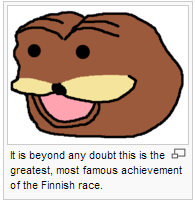Main Performance:


Image Labeling Memes have become a tremendous format across multiple social media sites. You see the things everywhere with laughably bad photoshops, other people’s faces crudely cut and pasted over other familiar formats, the works. Its relative simplicity has proliferated its usage like wildfire on twitter and other platforms for mass sharing but the format that seems so rudimentary had a really specific start to it all.
Enter Tony Kornheiser, famous American TV sportscaster whose coincidentally inquisitive facial expression placed above some nicely timed captions over the word “Why” captured a picture that would spawn millions of derivatives of a person’s or fictional character’s facial expression placed above photoshopped captions, often in recognizable fonts native to the TV. show, videogame, or comic.
Background:
The informant BL is one of my longest known friends who has also been around since the start of the internet’s massive growth and has inevitably taken part of the outburst of early memes and digital culture spawning from forums and image boards.
Context:
When memes were on the table for the project, I pondered with my friends over which were the ones that were most relevant to our own experiences and these were the results of our brainstorming.
My Thoughts:
Image Macros and Reaction Images are an enormous part online culture that has become rather inseparable to the posting experience. Beyond words, images capture emotions and resonate with a particular emotion to a feeling that others may recognize from knowing where the image originates from, creating layers upon layers of in-jokes and understanding that can become a culture all on its own. Kornheiser represents one of the originals that metaphorically birthed the image macro posting culture we have today and I have particular fondness for it as making one has slightly more effort put into than hap-haphazardly photoshopping people’s badly cut out faces onto unrelated pictures. These derivatives can also be taken to the extreme with entire sentences or songs with its text being cut and pasted to provide the necessary effect the given creator wants to convey in the parody.






